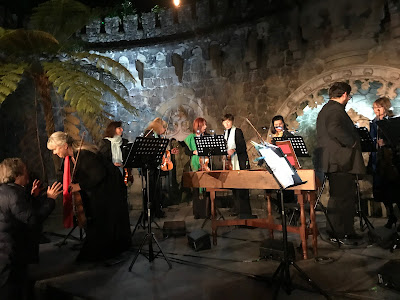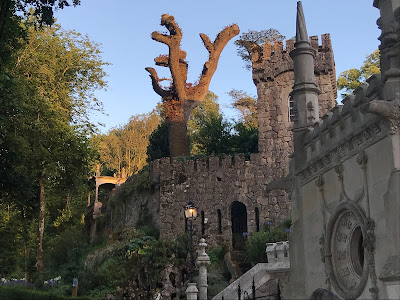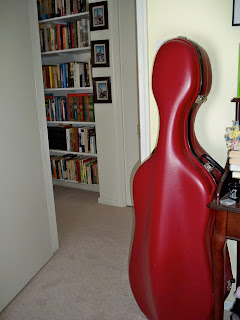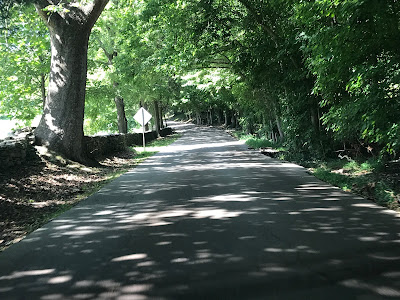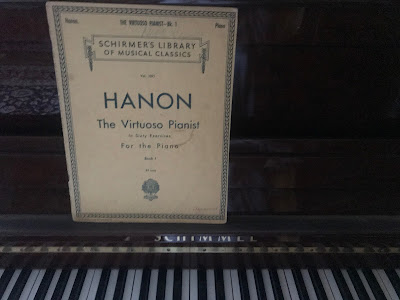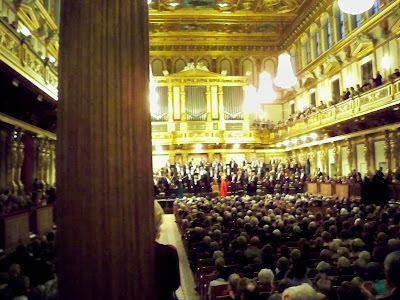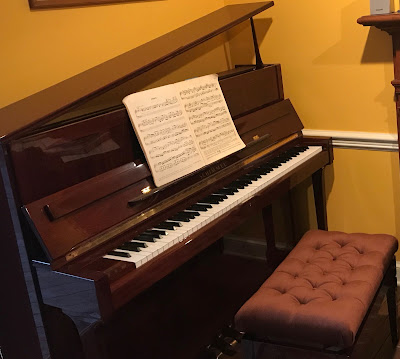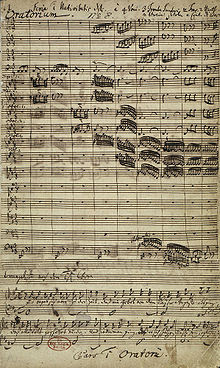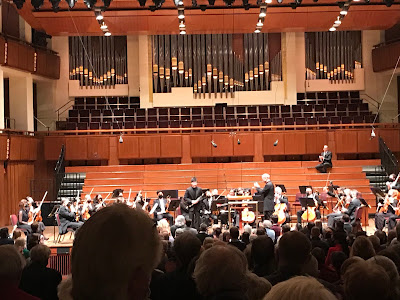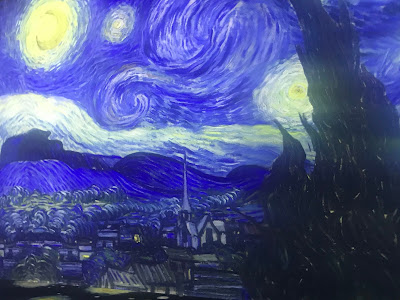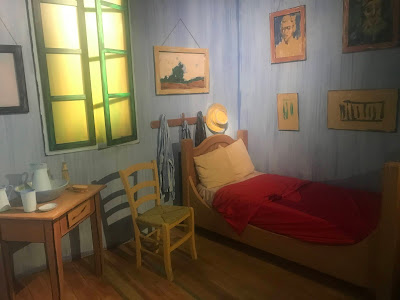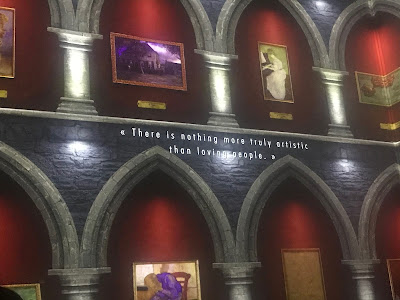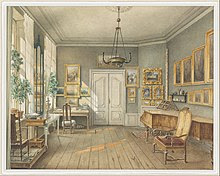The Concert
The crowd began to gather 30 minutes before the performance, a ragtag group of concert-goers, including students, friends of the musicians, and a few tourists thrown into the mix. It was our last night in Portugal and we had been wondering how to spend it when I happened upon an announcement of a concert on the grounds of the Quinta da Regaleira, of spiral staircase fame. What fun it would be to return in the evening, just as the last light was slanting onto the twisted spires and tree trunks!
That was before we arrived to find a black-clad musician (perhaps the cellist?) exclaiming to the guard on duty that, at least from what I could make out, something was missing at the venue. Forty-five minutes later, we were escorted through the grounds of the Quinta right up to the stage where the Damas de Sao Carlos, a 10-member all-female ensemble (plus a male harpsichordist) had taken the stage. The musicians came from Hungary, Poland, Bulgaria and Portugal. They had decked out their concert black with scarves of scarlet, blue and green.
We had barely taken our seats when they launched into “Spring” from Vivaldi’s “Four Seasons.” How the music filled and animated that special space! How good it was to hear those familiar notes in that unfamiliar setting. And how strangely comforting: it reminded me that just as music transcends all languages, travel transcends all cultures. It draws us together. It makes us, however briefly, one.
